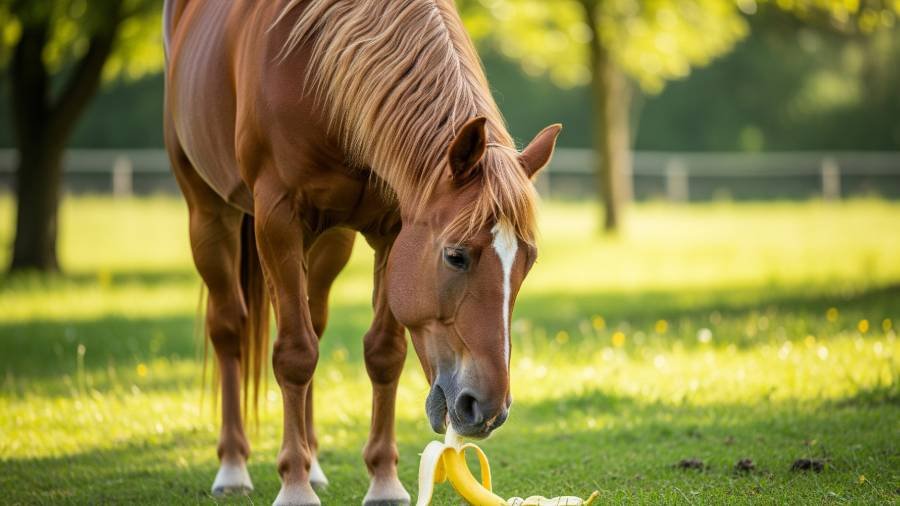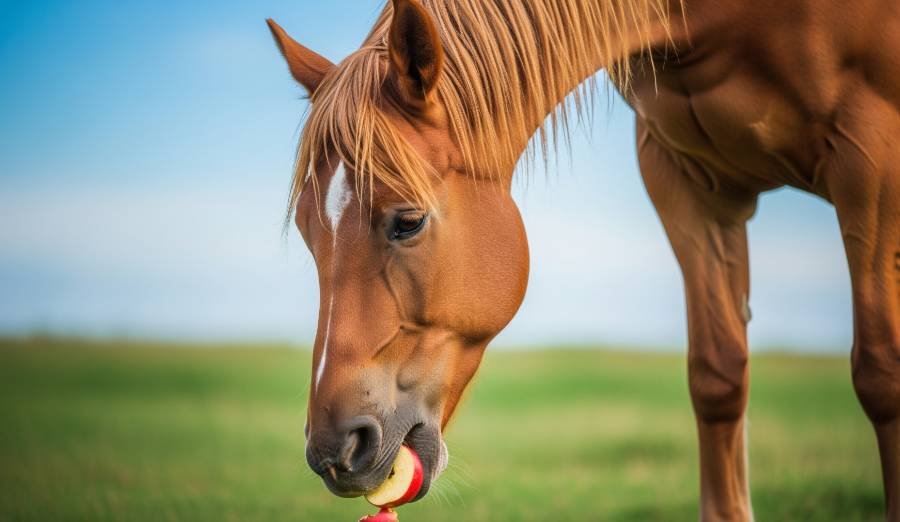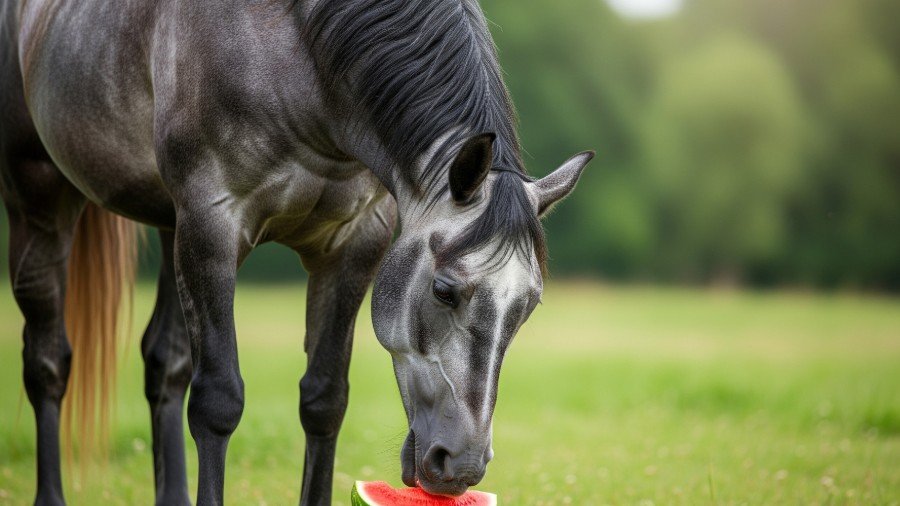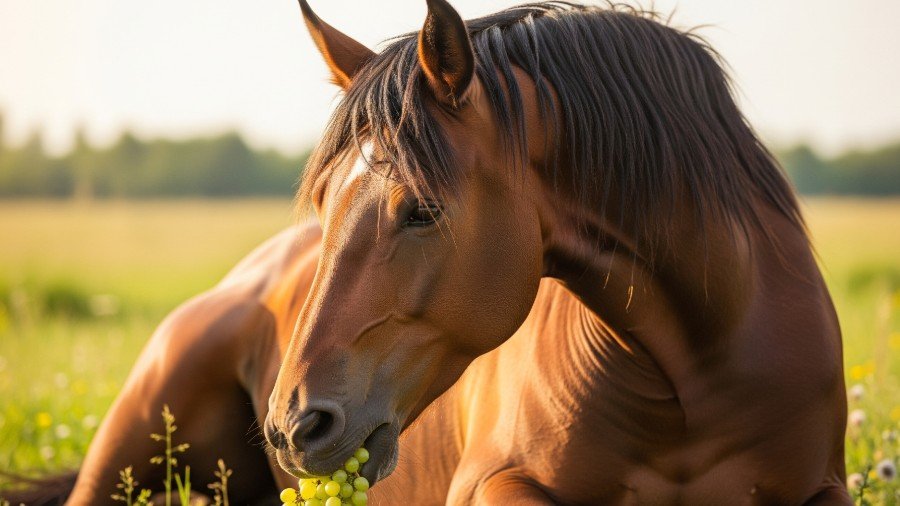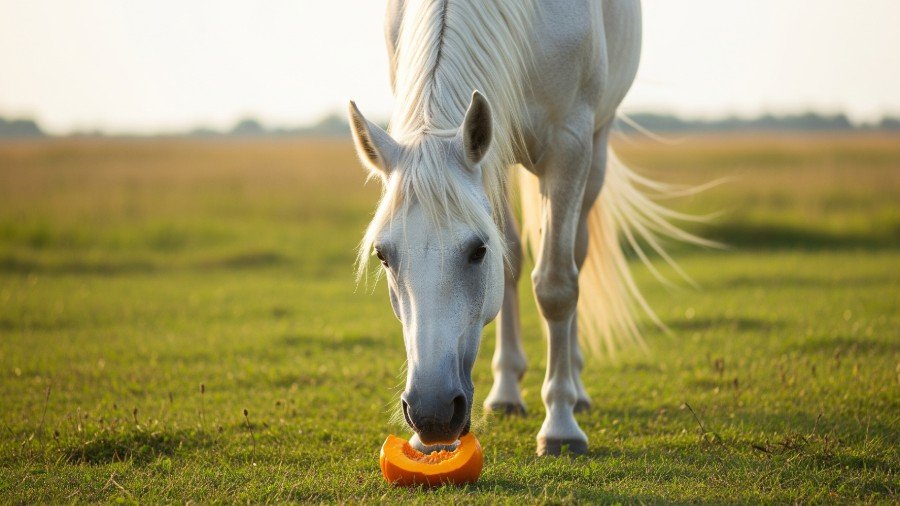Yes, horses can eat carrots as a safe and crunchy horse treat, loved by horses for their natural sweetness and texture.
As part of a horse’s diet, carrots provide nutritional benefits but should complement their primary forage and grain intake rather than dominate it.
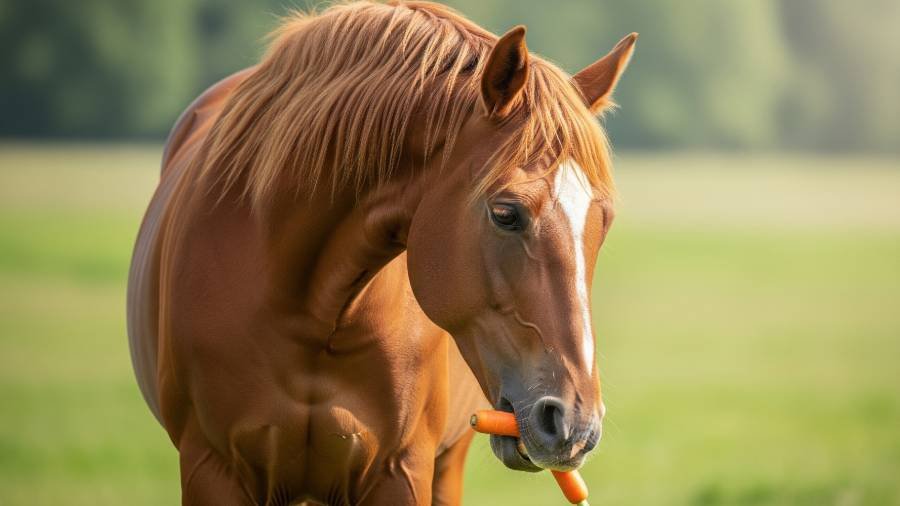
Potential Benefits of Carrots for Horses
When horses love carrots in moderation, they offer several advantages that enhance a horse’s diet:
- Rich in Beta-Carotene: Carrots provide vitamin A, supporting vision and immune health.
- Low Sugar Content: Their natural sweetness is gentle, making them suitable for most horses.
- Dental Health: Chewing a large carrot helps clean teeth and strengthen jaws.
- Hydration: With decent water content, carrots aid hydration on warm days.
- Fiber Source: The crunch offers mild fiber, promoting healthy digestion.
These benefits shine when you feed your horse carrots in controlled portions. For more on safe vegetables, explore do horses eat carrots.
Risks and Dangers of Carrots for Horses
While carrots are safe for horses, some risks should be considered:
- Choking Hazard: A large carrot or whole piece can pose a risk if a horse swallows without chewing.
- Overfeeding: Excessive carrots per day may lead to digestive upset or weight gain.
- Pesticide Residue: Non-organic carrots may carry chemicals, requiring thorough washing.
- Allergic Reactions: Though rare, some horses might show mild irritation from carrots.
- Nutritional Imbalance: Relying on carrots can lack essential nutrients from a balanced diet.
- Sugar Sensitivity: Horses with metabolic issues may need limited intake due to natural sugars.
How to Safely Feed Carrots to Horses
To ensure carrots are a safe treat, follow these guidelines:
- Wash Thoroughly: Rinse carrots under water to remove pesticides, even if organic, before feeding your horse.
- Cut if Needed: Slice into smaller pieces to avoid choking hazard, especially for younger or older horses.
- Feed Carrots in Moderation: Offer a small portion (e.g., one or two carrots) once or twice a week, keeping treats under 10% of a horse’s daily intake.
- Avoid Additives: Serve plain carrots without sugar, salt, or spices, which can harm a horse’s digestive system.
- Monitor Reactions: Introduce carrots gradually and watch for colic, diarrhea, or allergies over 24–48 hours. Consult a vet if issues arise.
- Consult a Vet: Seek veterinary advice before feeding carrots, especially for horses with metabolic disorders or dental problems.
Signs of Carrot-Related Issues
If a horse eats carrots excessively or reacts poorly, look for:
- Colic, diarrhea, or reduced appetite
- Excessive gas or bloating from digestive upset
- Lethargy or unusual behavior
- Difficulty swallowing or choking (from a large carrot)
- Skin irritation (rare allergic signs)
If these signs appear, stop feeding carrots and contact a veterinarian immediately. Severe digestive issues require urgent care.
Expert Opinions
Veterinary sources, such as the Equine Nutrition and Health Service, confirm that horses can eat carrots safely in moderation, praising their beta-carotene and dental benefits. Experts recommend cutting large carrots to prevent choking and limiting intake to avoid overfeeding. For more on safe produce, check can horses eat apples or can horses eat pumpkin.
Additional Considerations
- Health Conditions: Horses with insulin resistance or laminitis should limit carrots due to sugar content. Consult a vet first.
- Young Horses: Foals may need softer, smaller pieces, as advised by a vet.
- Horse Preferences: Many horses love the crunch of carrots, while others may not. If uninterested, try alternatives like those in can horses eat celery.
- Organic vs. Non-Organic: Organic carrots may reduce pesticide risk, but all should be washed.
- Year-Round Treat: Carrots are a versatile treat, available fresh year-round.
Safe Treat Alternatives
Instead of carrots, consider these safe-for-horses treats, tailored to enhance a horse’s diet and offering internal linking opportunities:
- Apples: Small, cored apple slices provide vitamins. Learn more in our guide on can horses eat apples.
- Pumpkin: Cooked, plain pumpkin supports digestion. Check our guide on can horses eat pumpkin.
- Watermelon: Seedless chunks hydrate and delight. Explore our article on can horses eat watermelon.
- Cucumbers: Thin slices offer low-calorie hydration. See our guide on can horses eat cucumbers.
Introduce new treats gradually, monitor for reactions, and consult a vet if unsure about safety.
Horses can eat carrots as a safe, nutritious treat for horses, offering benefits like beta-carotene and dental health when fed in moderation.
However, risks such as choking hazard, overfeeding, or pesticide exposure require cutting carrots and portion control. Horses with health issues like insulin resistance or young ones should avoid excessive carrots unless approved by a vet, and a balanced diet should remain the priority.
Always consult a veterinarian before introducing carrots or other vegetables. For more on equine nutrition, explore can horses eat bananas, can horses eat grapes, or what do horses eat.
For additional questions about what horses can eat or nutrition, feel free to ask!
